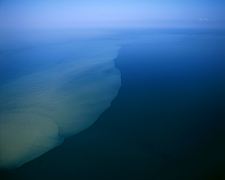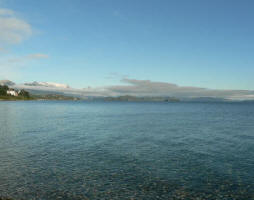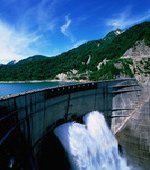 LIFE-Integrated Water Resources Management
LIFE-Integrated Water Resources Management
Context
Over the last two
decades, the United States Agency for International Development (USAID) has
worked closely with the Ministry of Water Resources and Irrigation (MWRI) improving
water management to benefit the economy of
The LIFE-Integrated Water Resources Management Project works with the MWRI to provide technical assistance, training, commodities, and small grants to support decentralization of water management. The aim is to increase water use efficiency and productivity. This is achieved by working with the MWRI to expand decentralization efforts through the establishment of Integrated Water Management Districts (IWMDs), and formation of Branch Canal Water Users’ Associations (BCWUAs). Project activities that focus on developing local capacity to better manage solid and liquid waste, as well as to encourage appropriate wastewater reuse in agriculture also support this aim.
| Project number | EPP-I-802-03-00013-00 Task Order 802 | ||
|---|---|---|---|
| Subject(s) | POLICY-WATER POLICY AND WATER MANAGEMENT | ||
| Acronym | LIFE-IWRM | ||
| Geographical coverage | Egypt | ||
| Budget (in €) | 0 | ||
| Programme | The USAID/Egypt funded Livelihood and Income from the Environment (LIFE) | ||
| Web site | http://www.iwrmeg.org/ | ||
| Objectives |
The
objective of this Task Order is to provide technical assistance, training,
commodities, and small grants in support of the decentralization of water
management decision-making and an increased participation of all rural
inhabitants in such decision-making in two priority geographical areas and four
Irrigation Directorates; Zifta and West Sharkiya
in the Middle Delta, and Qena and Seven tasks are to be implemented under the LIFE/IWRM Program: 1. Formation of Integrated Water Management Districts
2. Formation of 3. Equitable Allocation of Water Resources 4. Improved Maintenance and Upgrading of Water Management Equipment 5. Environmental Services for Improving Water Quality Management 6. Improved Wastewater Reuse Practices 7. Graduate Degree Training for MWRI Staff
The IWRM Project supports integration at
the district level in a variety of ways. Cross-Cutting ActivitiesEnvironmental education, public awareness, and communication support all project elements. These activities are critical given the evident need to involve a broad spectrum of stakeholders in a participatory process to ensure acceptance and sustainability. Gender considerations, a major focus of the USAID-Egypt strategy and the GOE’s vision, are also a cross-cutting theme. The project provides gender training to initiate actions that contribute to women’s active participation at all levels and enhance their capacities to generate income. To provide baseline measures, guide implementation, and define results, monitoring and evaluation activities are a vital cross-cutting component of the project. |
||
| Results | Project Activities
LIFE-IWRM Project activities
are organized in three areas and consist of seven major tasks. · Formation of Integrated Water Management Districts
·
Formation
of · Equitable Allocation of Water Resources 2. Stakeholder Engagement in Water Resources Management · Improved Maintenance and Upgrading of Water Management Equipment · Environmental Services for Improving Water Quality Management · Improved Wastewater Reuse Practices
3.
·
Graduate
Degree Training for MWRI
Results
Beneficiaries
Geographical
Locations
Partners |
||
| Period | [01/10/2004 - 30/09/2008] | ||
 you are not logged in
you are not logged in





